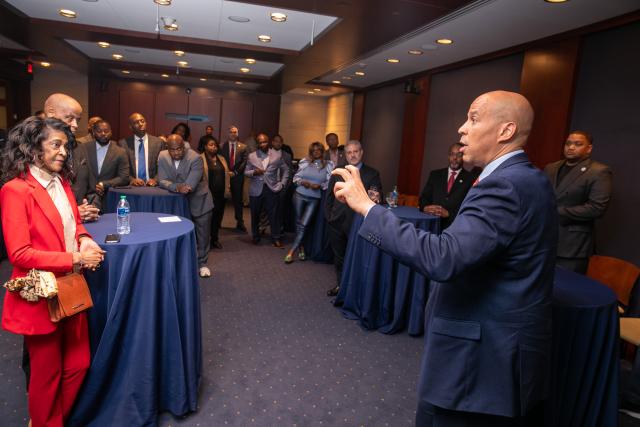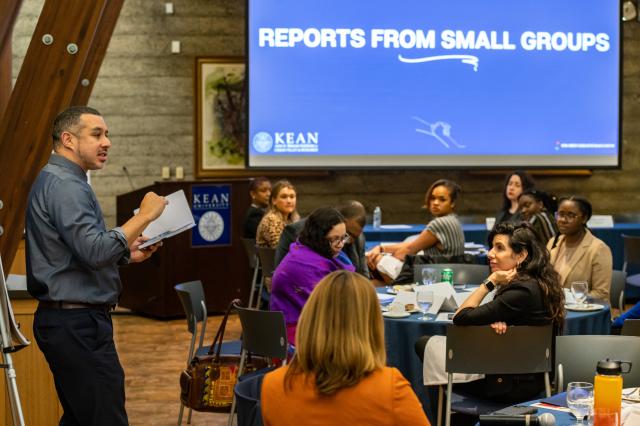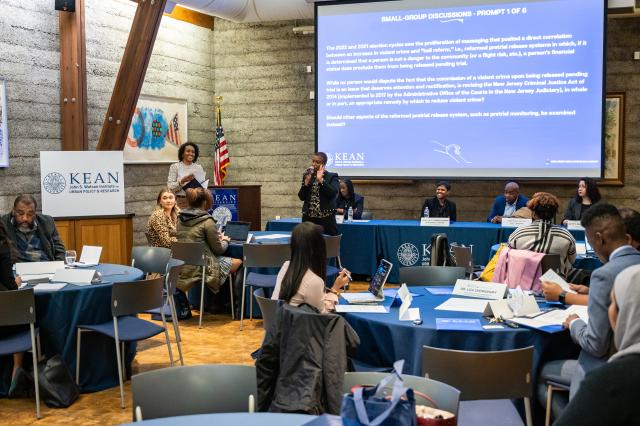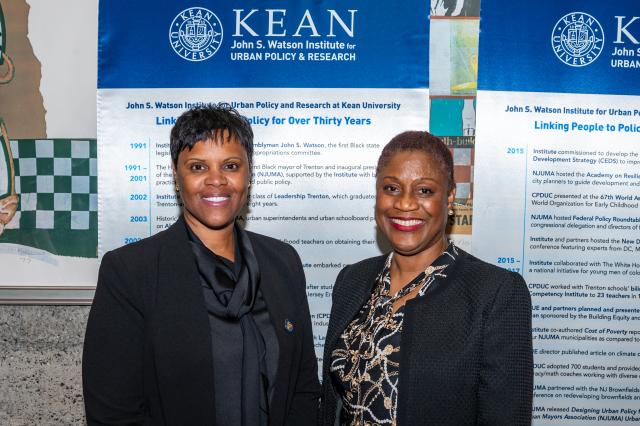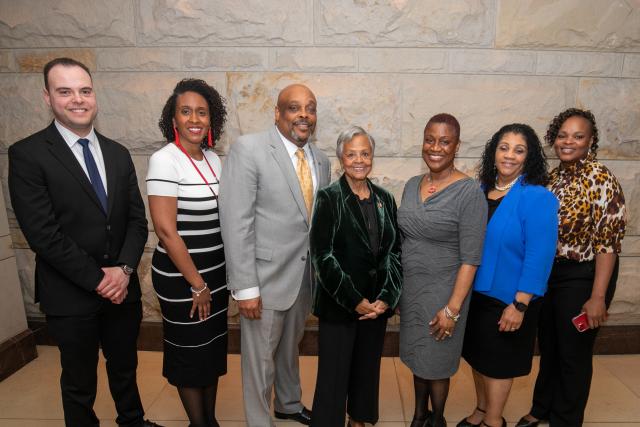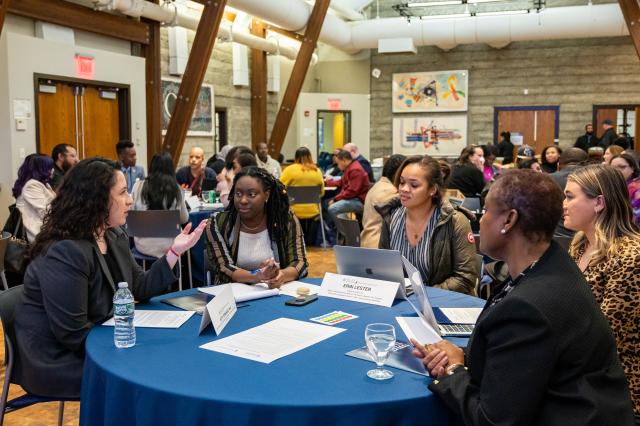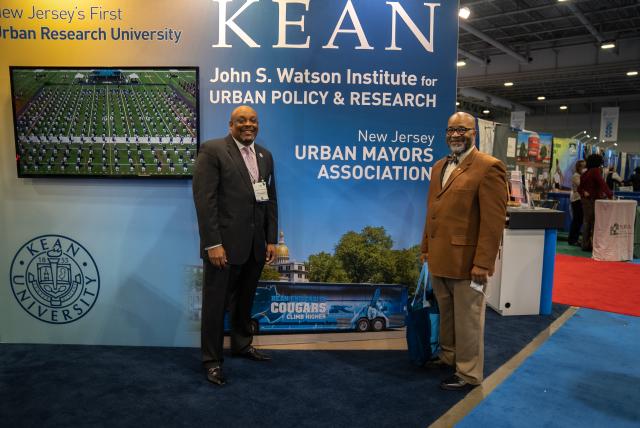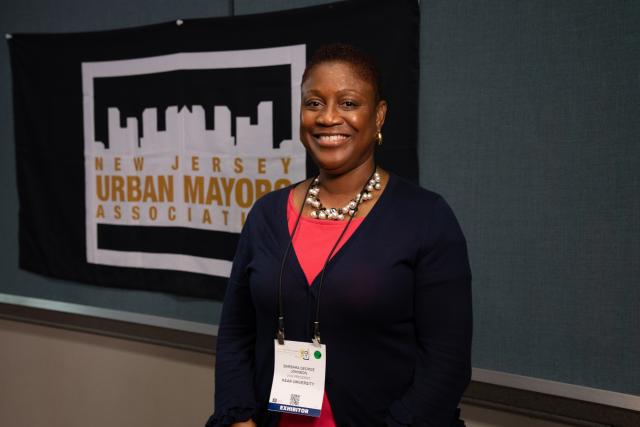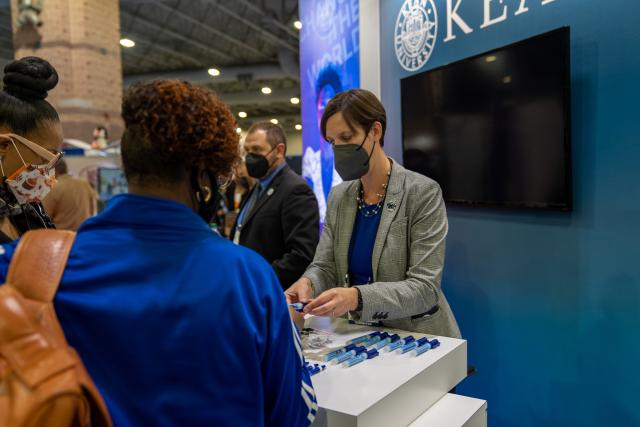
New Jersey Urban Mayors Policy Center
Established in 1991, the New Jersey Urban Mayors Association (NJUMA) is dedicated to working with state and federal lawmakers and officials to develop appropriate and effective public policy measures that benefit the state's urban centers and to help lawmakers understand how public policy affects New Jersey's cities and municipalities.
The Urban Mayors Policy Center of the John S. Watson Institute of Urban Policy and Research at Kean University provides support to the NJUMA on a wide range of issues, including providing critical insights and essential analysis of policies, issues and opportunities facing New Jersey’s urban centers. NJUMA serves its members through meetings and annual conferences that keep them informed about issues affecting their ability to provide adequate services to their constituents. NJUMA helps state and federal lawmakers develop effective public policy measures and evaluate how these policies impact New Jersey's cities and municipalities. NJUMA uses its Seven-Point Plan for Strengthening Cities, Families and Communities as a guide for addressing the critical issues of its member cities. This plan is designed to aggressively address the areas of crime and public safety; education and positive youth development; environment and public health; family and community welfare; housing and economic development; tax reform and intergovernmental relations; and unfunded mandates.
By conducting surveys, analyzing legislation and regulations, sponsoring conferences and coordinating other policy initiatives, the Institute has helped urban mayors become more proactive in their participation in public policy and advocate for their constituents. The Institute developed an urban-focused Comprehensive Economic Development Strategy (CEDS) for North-Central New Jersey, which received U.S. Commerce Department, Economic Development Association (federal EDA) approval and funding designation as a CEDS which aided many NJUMA in securing federal aid for local projects.
Most recently, the NJUMA and the Institute worked together to examine the policy implications of COVID-19 disparities in urban centers and the allocation of funding to cities to address the public health and educational needs of citizens during the pandemic. The NJUMA was able to use this information to directly address these issues with the Governor’s Office.
History
The New Jersey Urban Mayors Association's leadership began with Mayor Doug Palmer as the charter president and first African American mayor of the city of Trenton. Other cities noticed the assistance Mayor Palmer was receiving and joined together to become a collective force. The second NJUMA president was then Irvington Mayor Wayne Smith. Former Perth Amboy Mayor Wilda Diaz was the first woman and the first Latino to lead the organization. Bridgeton Mayor Albert Kelly, who also served as New Jersey League of Municipalities past president, was NJUMA president before the current president, Newark Mayor Ras J. Baraka.
Since its beginning in 1991, NJUMA has been instrumental in formulating comprehensive public policy for New Jersey's cities and collaborates with the state on a slew of high-impact issues past and present. For example, the NJUMA was the federal point of contact for Superstorm Sandy relief efforts for the entire state of New Jersey.
Recently, the NJUMA worked with the Governor's Office to address issues related to the COVID-19 pandemic, including access to testing and vaccines, ensuring educational opportunities in a new virtual learning environment, and finding ways to offer financial assistance to cities and their residents. Currently, the NJUMA is working with the New Jersey Cannabis Regulatory Commission and statewide officials on establishing an equitable cannabis industry.
